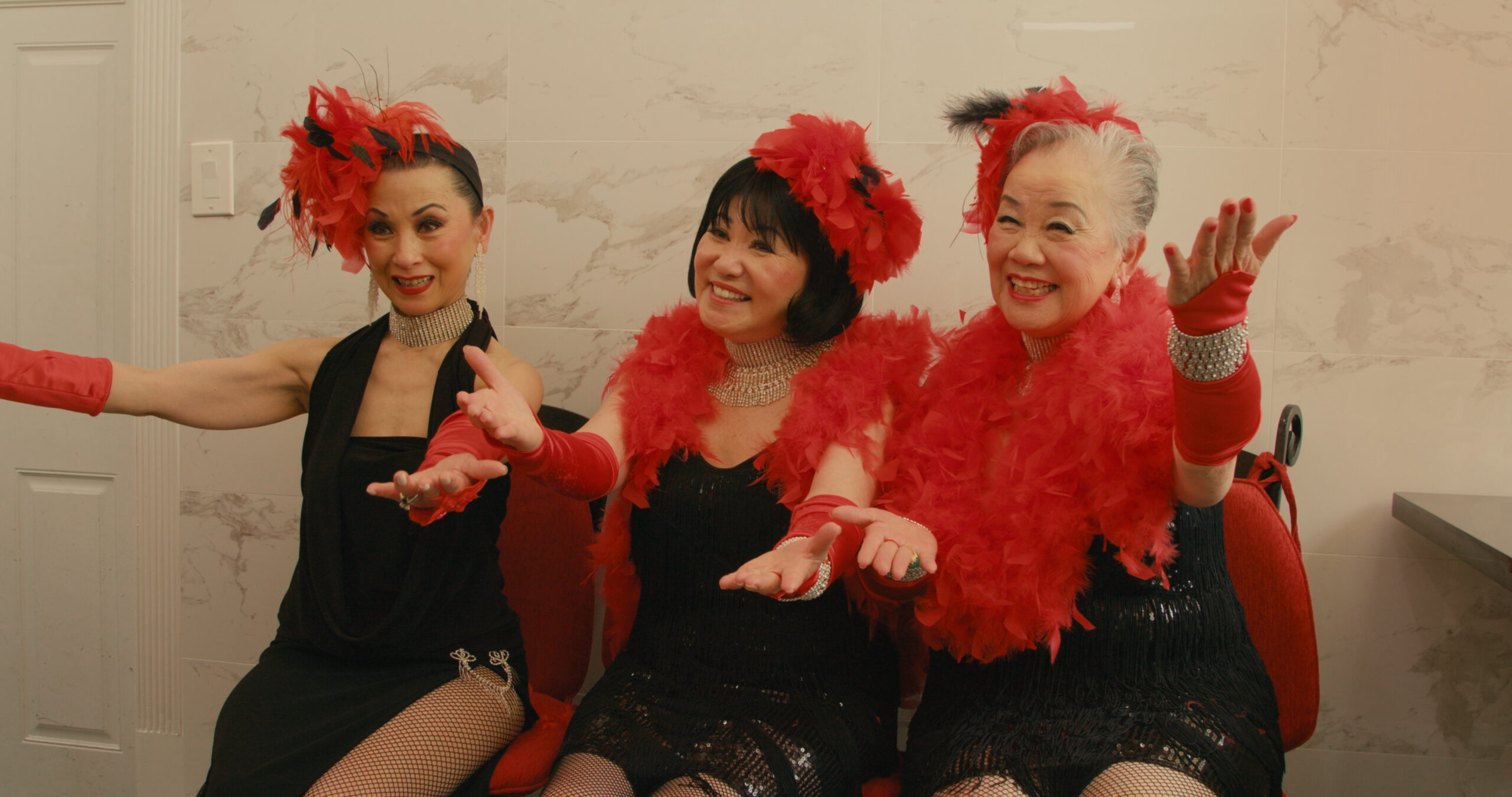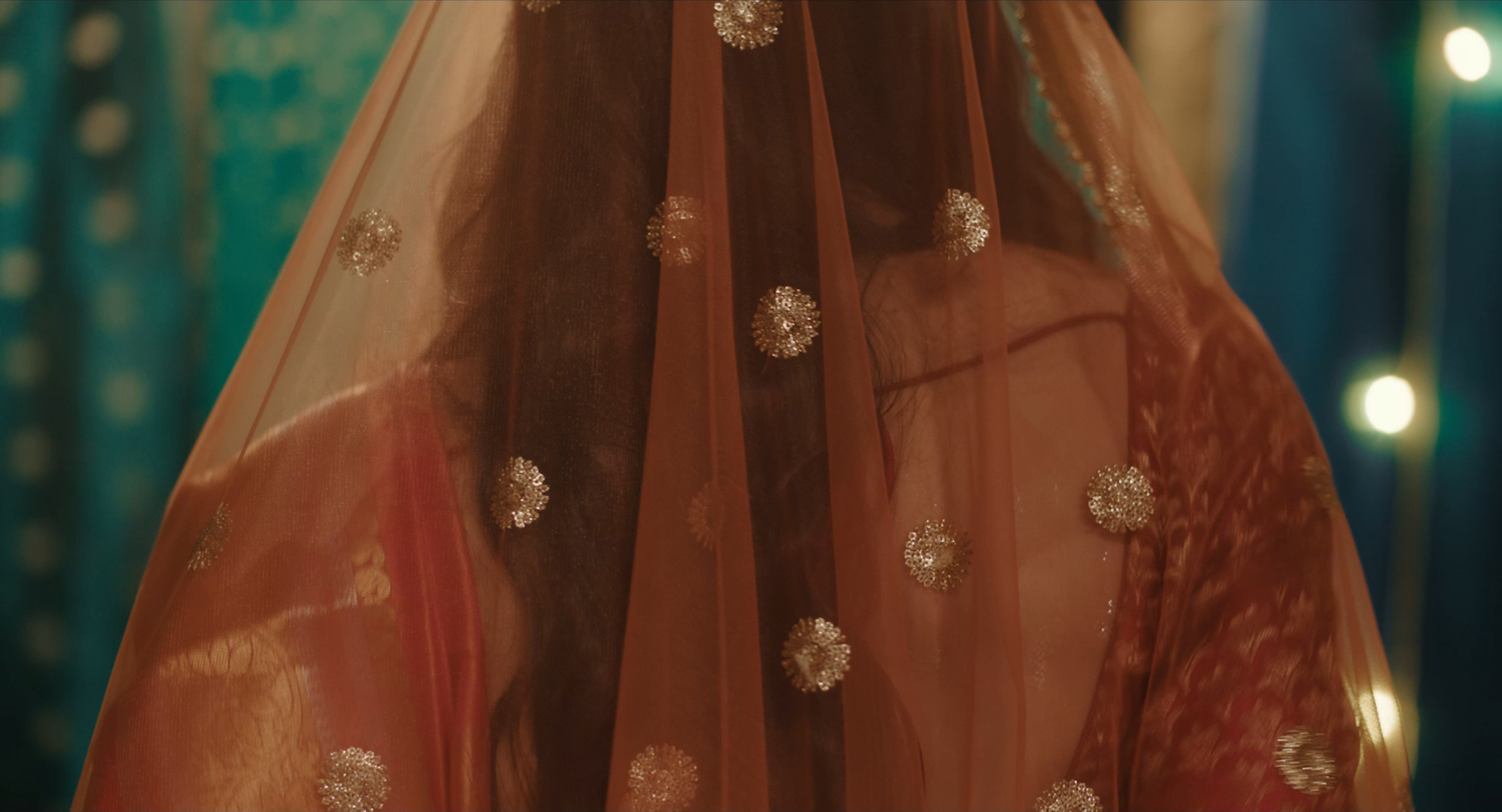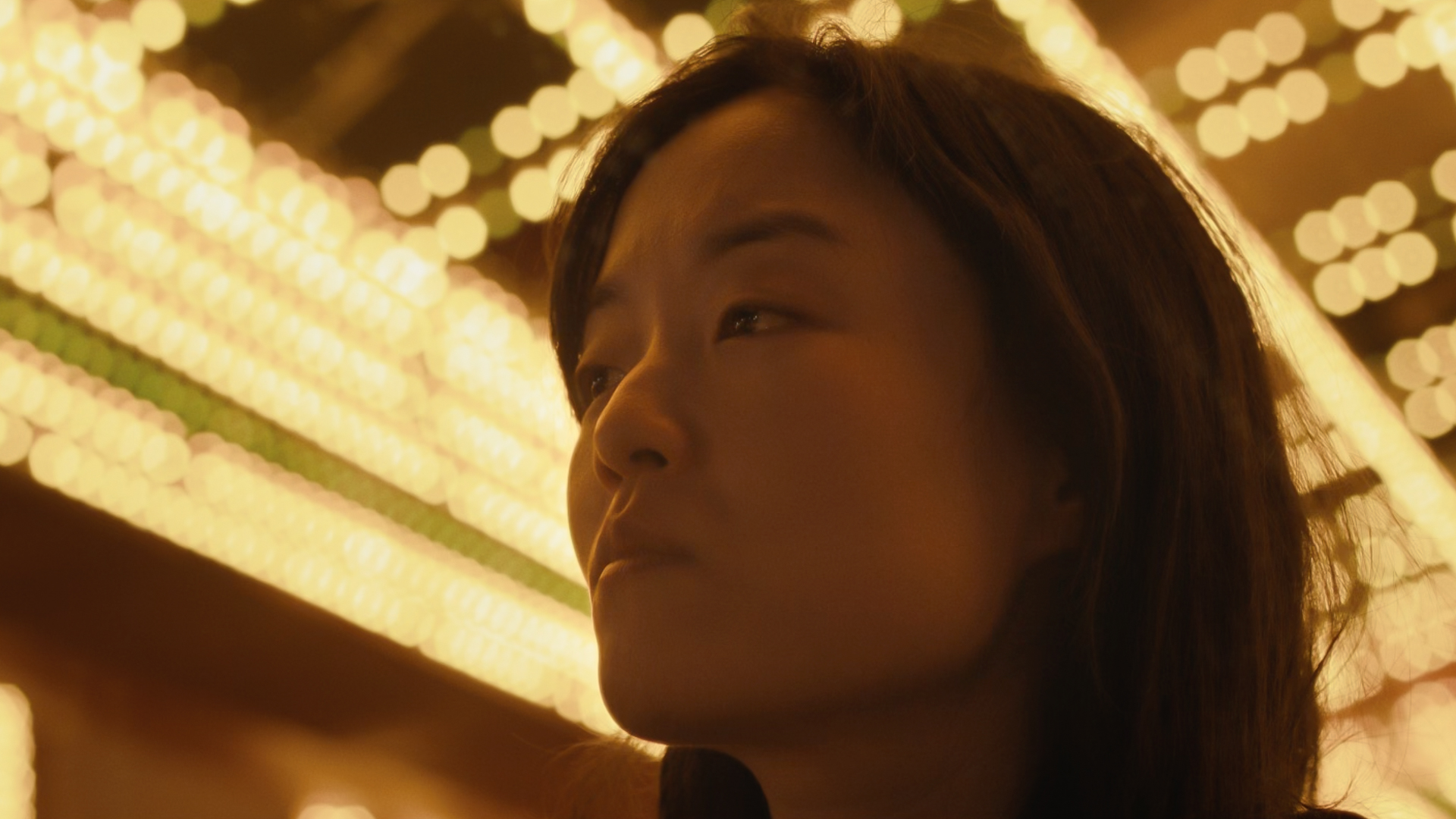Joy, Rebellion, and Diaspora: LAAPFF 2025 Celebrates Asian Stories That Dance Across Generations
May 23, 2025
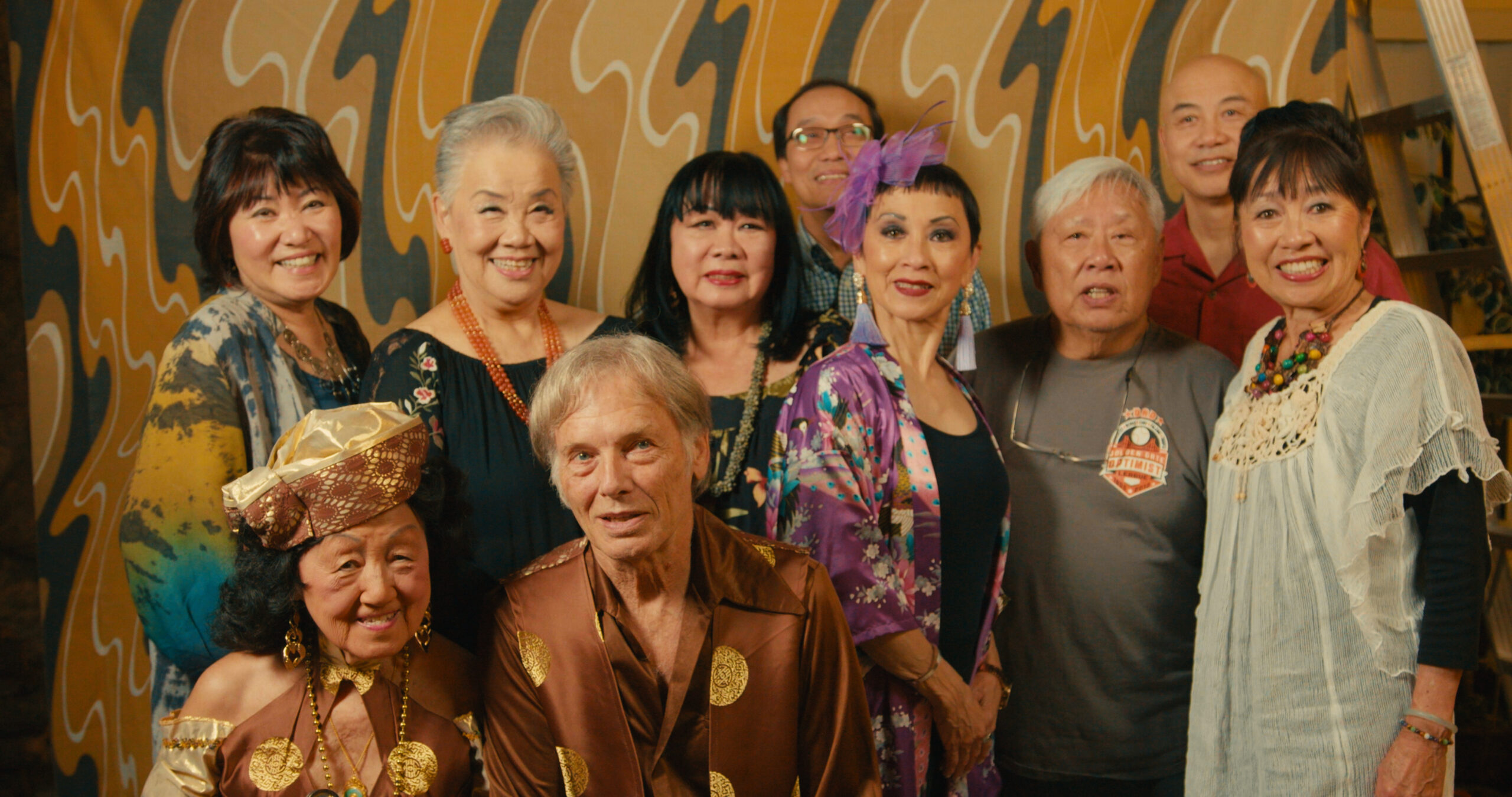
Written by Eseel Borlasa, After Bruce
Los Angeles, CA – At the 2025 Los Angeles Asian Pacific Film Festival (LAAPFF), joy isn’t just an emotion – it’s a strategy. It’s how we remember, resist, and rebuild. Across three standout films –Chinatown Cha-Cha by Luka Yuanyuan Yang, Zari by Shruti Parekh, and Three Ates and a Wedding by Kevin Justin Ang and Lumen Beltran–audiences are invited to dance in the margins, embrace familial friction, and discover the radical power of showing up as yourself.

Luka Yuanyuan Yang at the 2025 Los Angeles Asian Pacific Film Festival. (Photo By Sthanlee B. Mirador/LAAPFF)
CHINATOWN CHA-CHA
Directed by Luka Yuanyuan Yang
San Francisco’s Grant Avenue Follies, a senior Chinese American dance troupe, takes center stage in Chinatown Cha-Cha. At its heart is the incomparable Coby Yee, a 92-year-old burlesque pioneer who reclaims glamour and grace with every sequined step.
Yang’s film is more than a nostalgic tribute -it’s a cross-border love letter. “The film follows a transnational tour that literally bridges Chinese communities across the U.S., Cuba, and China through dance and performance,” Yang explains. “These moments of recognition and joy across geographical and generational divides demonstrate the power of artistic expression to forge meaningful connections.”
The documentary challenges stale narratives about aging and Asian femininity. With sass, style, and undeniable charisma, the Follies transform performance into resistance. “Joy and creative rebellion are intrinsic to the film’s story,” Yang affirms. “Despite social restrictions and stereotypes, these women found ways to express themselves joyfully… Each performance is a profound celebration of life.”

CHINATOWN CHA-CHA (2024)
Beyond the screen, Chinatown Cha-Cha fuels an intergenerational impact campaign called “Generations in Step.” It’s about passing on more than choreography -it’s about legacy. “Creative communities can foster meaningful mentorship and support across generations,” Yang reflects, describing how she herself became part of the troupe’s extended family.
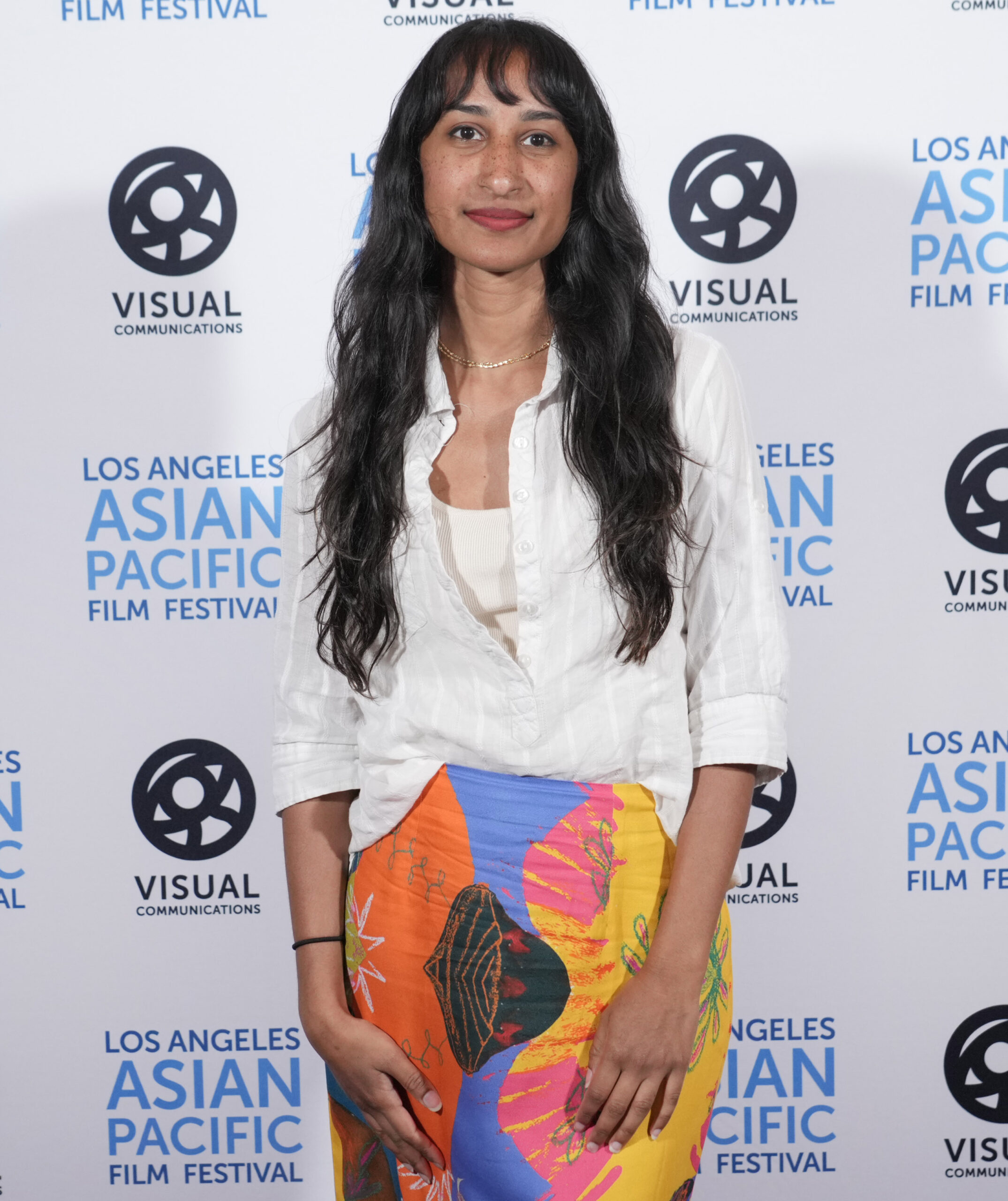
Shruti Parekh at the 2025 Los Angeles Asian Pacific Film Festival. (Photo By Sthanlee B. Mirador/LAAPFF)
ZARI
Written and Directed by Shruti Parekh
Across the globe in Delhi, teenage Neelu is dreading a traditional sari shopping trip -until she meets Zeyb, a quiet shop clerk who transforms into the dazzling drag persona Zari after hours.
“Zari reflects the uniquely human need to express oneself authentically and to connect with others who do the same,” Parekh writes. In this quietly radical coming-of-age tale, self-expression becomes rebellion. “Zari is about the political act of being gender fluid and/or queer,” she explains. “Not fitting into gender roles can be dangerous… And yet, the characters in Zari tread those waters.”
Parekh’s diasporic lens makes visible what’s often hidden in Indian and South Asian storytelling: “I wanted to show that gender fluidity is actually a part of life in India… There is much more complexity in our community than patriarchal or mainstream narratives may lead one to believe.”
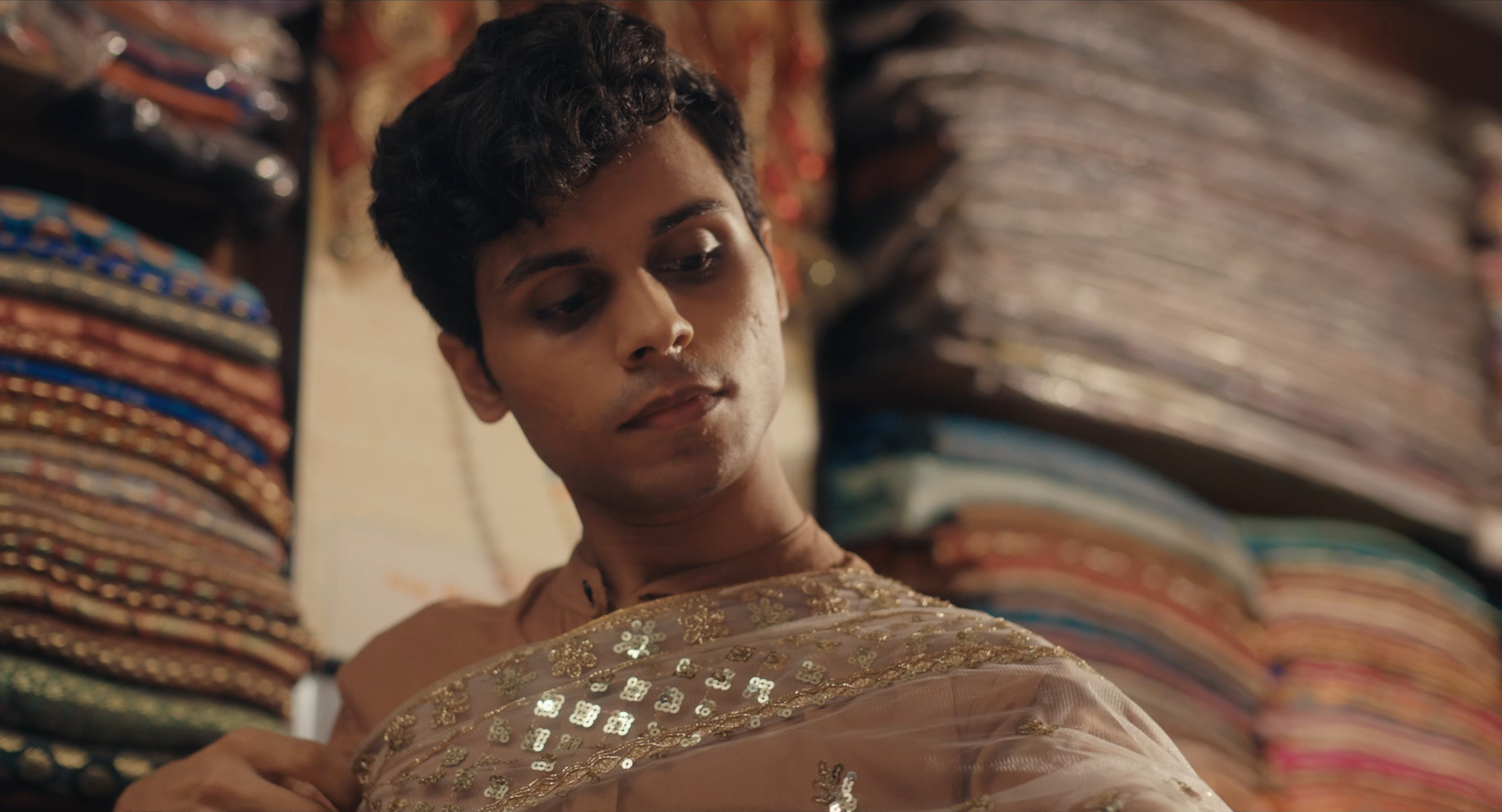
ZARI (2024)
Whether through glimpses of the third-gender community or the glint of a mirrored dance floor, Zari celebrates “the beauty of drag, dance, and self-expression -which is all about joy and creative rebellion,” Parekh affirms. “The courage of one individual to break out of the status quo will inevitably inspire someone else -and that’s beautiful.”

THREE ATES AND A WEDDING (2024)
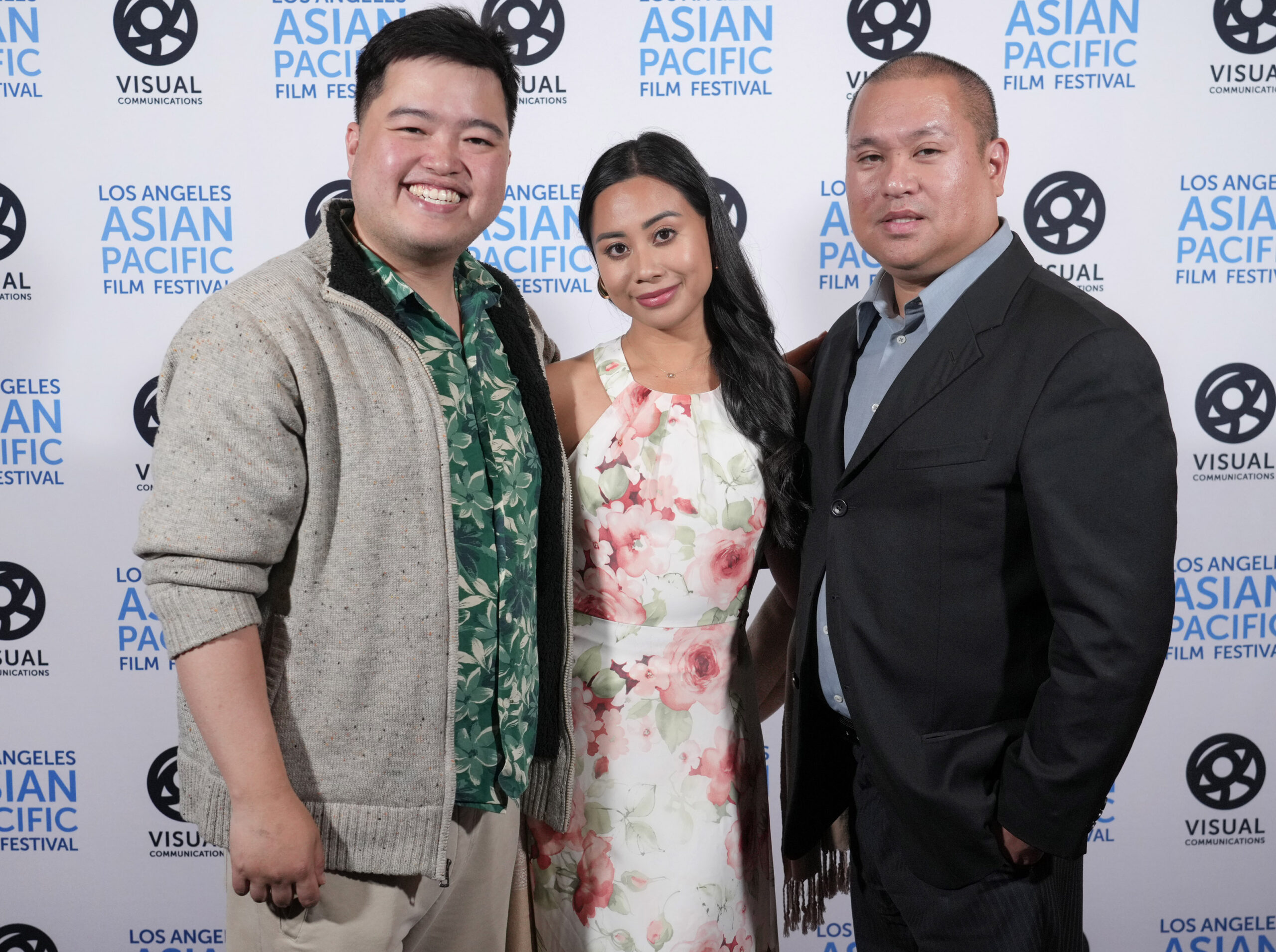
Kevin Ang, Lumen Beltran and Phil Planta at the 2025 Los Angeles Asian Pacific Film Festival (Photo By Sthanlee B. Mirador/LAAPFF)
THREE ATES AND A WEDDING
Directed by Kevin Justin Ang | Written by Lumen Beltran and Kevin Justin Ang
A family mockumentary set in Vancouver, Three Ates and a Wedding throws tradition, laughter, and long-held secrets into one riotous weekend.
“Our stories don’t have to be heavy to be meaningful,” says actress-producer Lumen Beltran. “A light-hearted approach is a great way to touch on difficult Filipino cultural issues.” Set during a chaotic family wedding, the film showcases three sisters -each hilariously different- grappling with duty, identity, and inheritance. “It’s a celebration of the stubborn love that persists in our community,” Beltran adds.
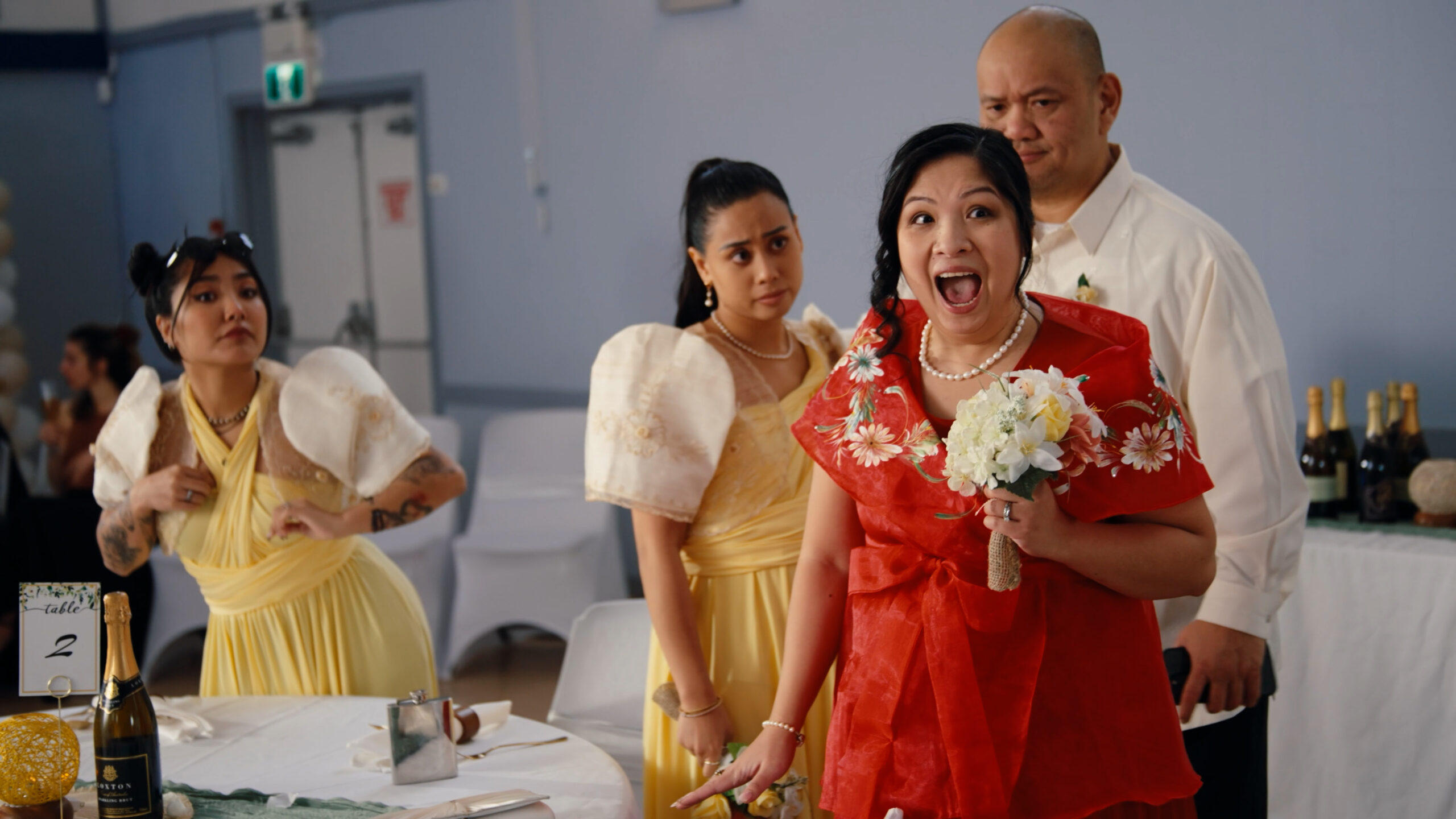
THREE ATES AND A WEDDING (2024)
Director Kevin Justin Ang emphasizes the importance of joy as a narrative compass: “I think joy is a great word. I like to infuse joy because it’s a great moral compass to return to… If you lead your characters back to joy, there’s a sense of hope for life and for the future.”
And that joy is far from apolitical. “Our film centers an unapologetically Filipino sister trio in a genre that rarely makes space for immigrant families,” Beltran notes. “It challenges Hollywood’s idea of what’s ‘universal.’”
Across Generations, Across Oceans
Together, Chinatown Cha-Cha, Zari, and Three Ates and a Wedding illuminate a collective refusal to flatten Asian identity into one mold. Whether it’s Coby Yee reclaiming stage space at 92, Zeyb twirling defiantly in a sari, or a trio of Filipino sisters arguing and loving loudly, these films remind us: joy is not just celebration. It’s legacy. It’s rebellion. And it’s the connective tissue of cultural memory.
These stories invite us to laugh, cry, question, and dance -all while asking: what do we carry forward? And what do we choose to transform?

 tweet
tweet share
share